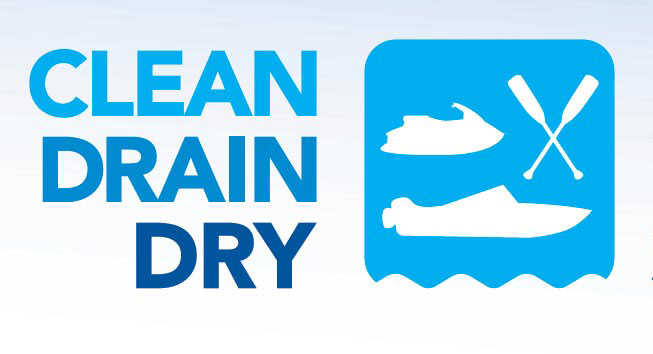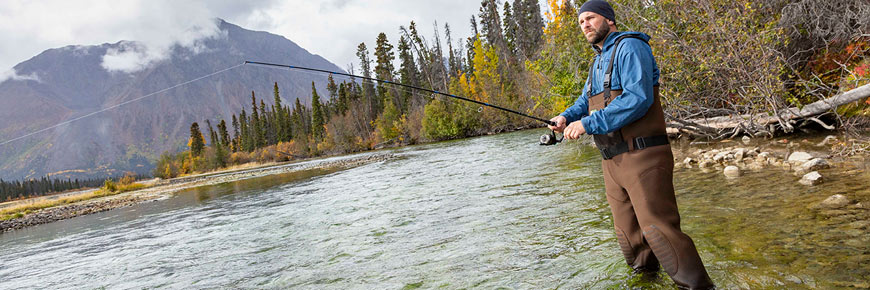
Angling regulations summary
Kluane National Park and Reserve
This information is meant to be a brief summary designed to help you interpret the rules. Additional information and the complete regulations are available at park offices.
Licenses | Angling | Closed waters | Be bear aware | Overnight backcountry visitors | Help maintain the park's wilderness character | Help us protect Kluane's fish | Catch and possession limits | How to identify your catch | Keep aquatic invaders out
Recreational angling opportunities are provided as a way of experiencing Kluane National Park and Reserve. Possession limits and special conservation measures are established as a way of maintaining healthy fish populations.
Subsistence fishing may be carried out by Yukon First Nations with Traditional Territory in Kluane National Park and Reserve.
Open season for fishing is year round.
Licenses
You must purchase a national park fishing license when angling in Canada’s national parks. Yukon fishing licenses are not valid.
Annual (valid from April 1 to March 31 of the following year) and one-day licenses are available at the Kluane National Park and Reserve Visitor Centre in Haines Junction and at the Parks Canada office in Haines Junction. They may also be available from retail outlets near the Park.
Youth under the age of 16 may fish in the Park without a license if accompanied by a license holder who is 16 years of age or older. However, their catch is then included within the license holder’s daily limit. Youth under 16 who purchase a license are allowed their own daily limit.
Use of barbless hooks is required: Single hooks only in Kathleen River, and treble or single hooks in other Park waters.
Angling
When angling in Kluane National Park and Reserve it is unlawful to:
- Fish without a valid Kluane National Park and Reserve Fishing License
- Fish by any method other than angling
- Fish from 2 hours after sunset to 1 hour before sunrise
- Use more than one rod and line
- Leave a fishing line unattended (no set-lines)
- Use, or be in possession of a lead sinker or jig weighing less than 50 grams
- Use, or have in possession for use as bait, any live or dead fish or any parts thereof
- Use a motor boat in the Park other than in Kathleen Lake/River and Mush Lake
- Use a snowmobile in the Park, other than on the ice surface of Kathleen Lake
- Sell, offer to sell, trade or barter fish caught within the park
- Waste or allow fish to spoil that is suitable for human consumption
- Fish while employed as a fishing guide or boatman during hours of employment
The possession limit shall not exceed one day’s legal catch.
Closed waters
Public access is prohibited in Sockeye Lake and the creek between Sockeye Lake and Louise Lake.
-
Map of closure area
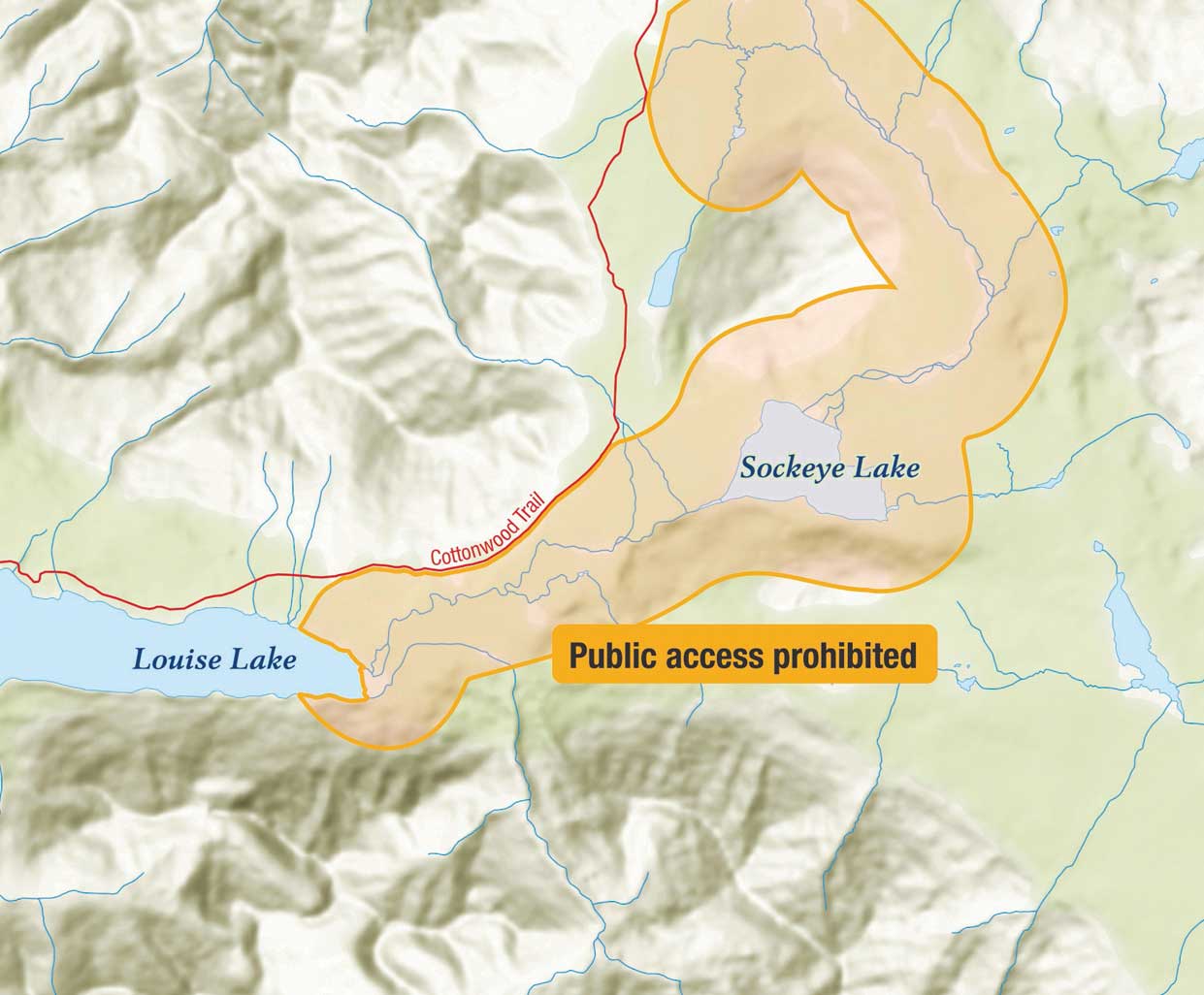
Be bear aware
Fish entrails attract bears. Dispose of them in a park garbage container or sink in backcountry water bodies. Puncturing the air bladder is important to ensure fish entrails sink.
Overnight backcountry visitors
Registration and permits are required for all backcountry camping, and are available at the Kluane National Park and Reserve Visitor Centre located in the Da Kų Cultural Centre (Haines Junction) or the Thechàl Dhâl' Visitor Centre.
Help maintain the park's wilderness character
Please comply with national parks' pack-in pack-out policy and use low impact camping practices.
Help us protect Kluane's fish
Prompt reporting of illegal activities is critical for the conservation and protection of the Park.
Report all poaching and illegal fishing:
1-877-852-3100
Record and report:
- Date/time
- Location
- Description and number of people involved
- Vehicle descriptions and license plates
- Details of the violation
Catch and possession limits
| Species | Daily | Size restrictions |
|---|---|---|
| Kokanee salmon - Sachäl | 0 | Release ALL kokanee salmon |
| Rainbow trout - Mbeda | 0 | Release ALL rainbow trout |
| Maximum daily catch | 6 | All species combined |
| Arctic grayling – T’äwa | 4 | Release if:
|
| Lake trout – Mbet | 2 | All species of char and trout combined, except Rainbow Release if:
|
| Dolly varden | 2 | All species of char and trout combined, except Rainbow |
| Northern pike – Tàte | 4 | Release if:
|
| Round whitefish – Sakay | 4 | All whitefish combined |
| Burbot | 6 |
Slot limits
Slot limits in national parks use fork length**: measured from the tip of the snout to the fork in the tail.
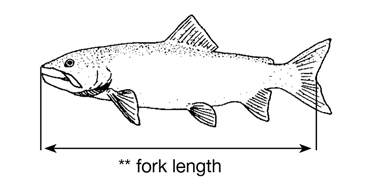
*Only one fish of each species in your daily limit or possession can be over this slot length size.
How to identify your catch
Anglers are responsible for distinguishing one fish species from another. If you are unsure, release it.
Kokanee salmon – Sachäl (Oncorhynchus nerka)
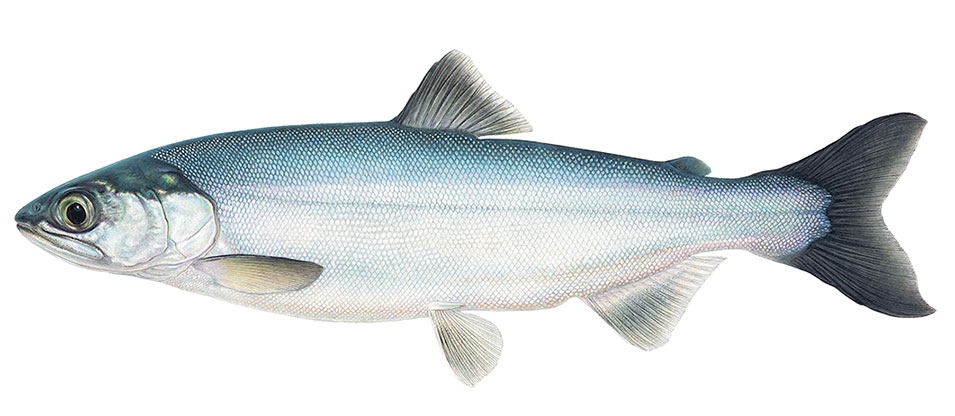
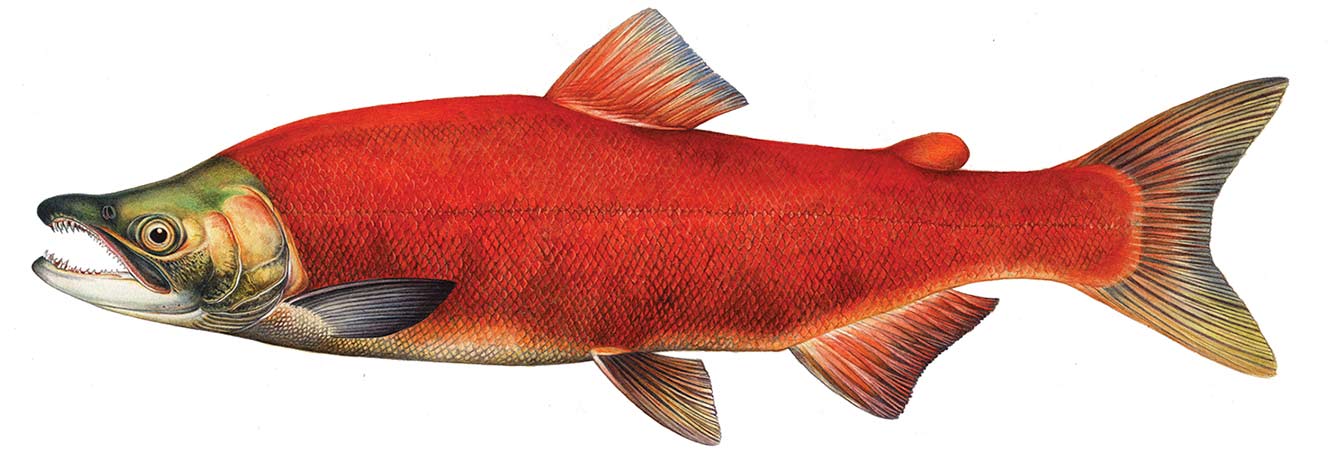
Rainbow trout – Oncorhynchus mykiss
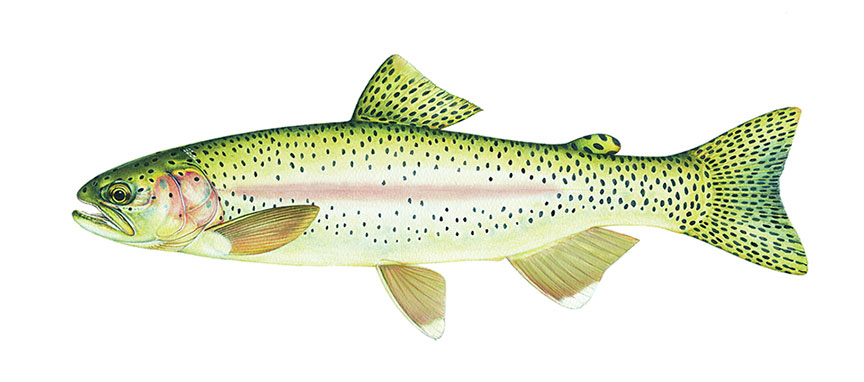
Arctic grayling – T’äwa (Thymallus arcticus)
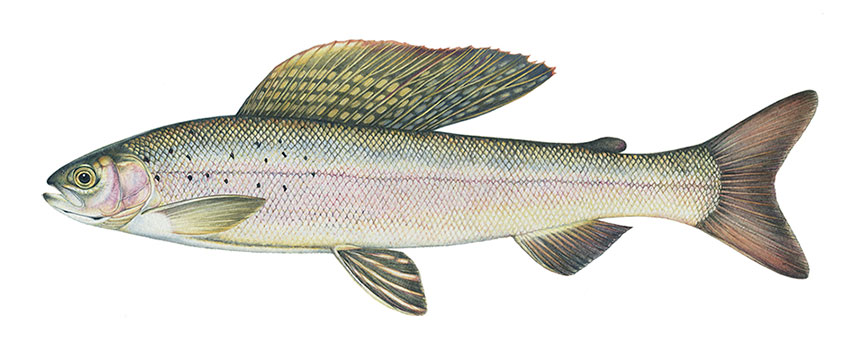
Lake trout – Mbet (Salvelinus namaycush)
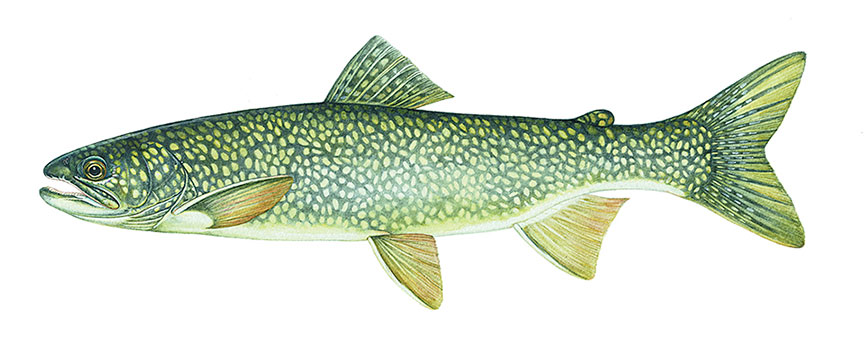
Dolly Varden – (Salvelinus malma)
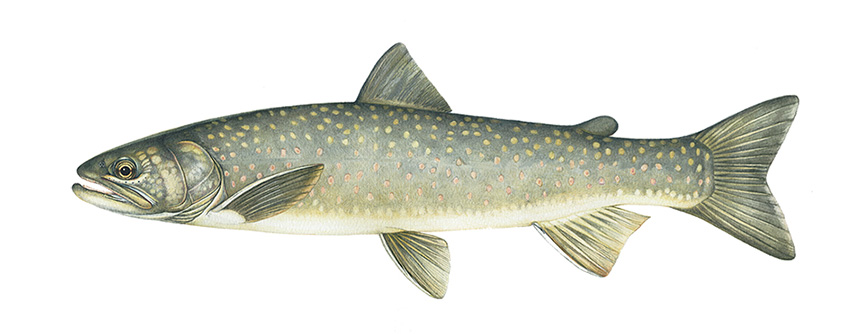
Northern pike – (Esox lucius)

Round whitefish – Sakay (Prosopium cylindraceum)
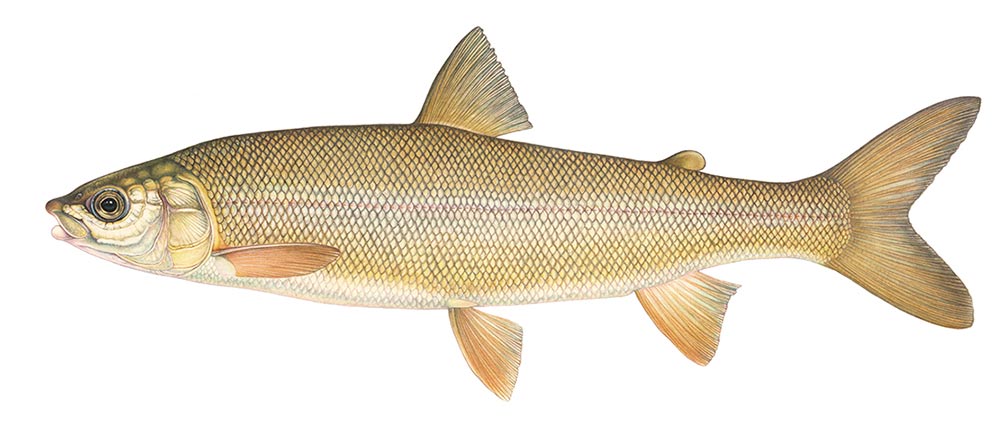
Burbot – (Lota lota)
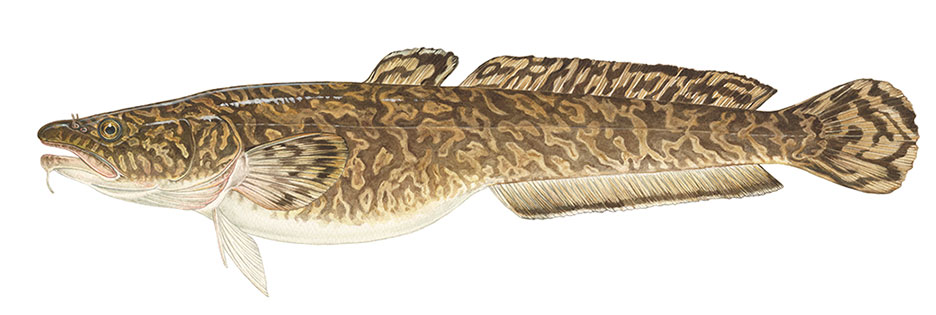
Keep aquatic invaders out
Invasive plants and animals can damage our aquatic ecosystems. Pay special attention when you are moving from one water body to another, particularly if you are coming from outside of Yukon.
Before and after your trip...
- Clean plants, animals and mud from boats and gear
- Drain all water from boat and gear onto land
- Dry all parts of your boat and gear completely
...to prevent the spread of aquatic invasive species.
Report aquatic invasive species in the Park: 1-867-333-9247
- Date modified :
